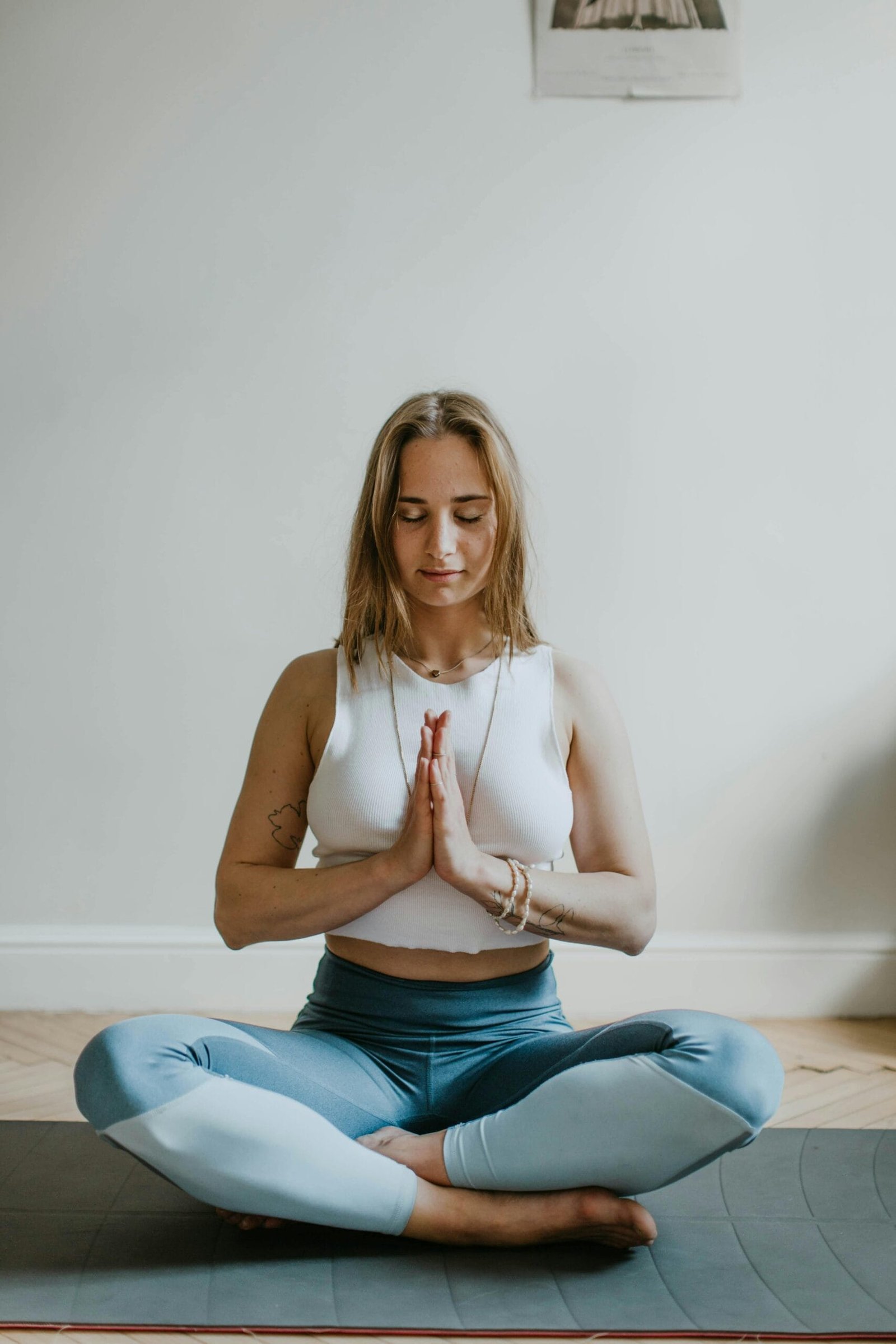Have you ever wondered how you could manage anxiety without feeling overwhelmed by complex strategies? Anxiety is a prevalent issue many face in their daily lives, often silently and persistently. This article aims to provide straightforward and holistic approaches to anxiety management, making it easier for you to incorporate these methods into everyday life.

Table of Contents
Understanding Anxiety: A Brief Overview
Anxiety is an emotion characterized by feelings of tension, worried thoughts, and physical changes like increased heart rate. Recognizing its signs and roots is crucial in managing it effectively. Anxiety can manifest in various forms, from general anxiety to specific phobias or panic disorders.
What Triggers Anxiety?
Identifying triggers is the first step towards effective management. These might include stress at work, financial concerns, health issues, or personal relationships. Understanding your triggers can help in devising a strategy that addresses the underlying issues instead of just the symptoms.
The Holistic Approach: What It Means
A holistic approach considers the entire person, encompassing physical, emotional, and mental wellbeing. It’s about looking beyond symptoms to include diet, lifestyle, and emotional health. This method promotes a balanced lifestyle, helping reduce anxiety’s hold over your daily routine.
Key Concepts in Holistic Anxiety Management
Implementing holistic strategies involves integrating mindfulness, lifestyle changes, and dietary adjustments. These methods aim to promote overall wellbeing, thus diminishing anxiety’s impact.
Mindfulness and Meditation
Mindfulness encourages you to live in the moment, focusing on the present rather than worrying about the future or dwelling on the past. Daily meditation practices can enhance mindfulness, improving emotional regulation and reducing anxiety.
Steps to Start Meditating
- Find a Quiet Space: Select a peaceful area free from distractions.
- Set a Time Limit: Start with 5-10 minutes a day.
- Focus Your Attention: Concentrate on your breath or a specific mantra that calms you.
- Observe Your Thoughts: Allow thoughts to pass without judgment, returning focus to your breath.
- Practice Consistency: Make it a part of your routine for lasting benefits.
Physical Activity and Its Role
Exercise is a natural anxiety fighter. It releases endorphins, chemicals in the brain that act as natural painkillers and mood elevators.
Recommended Activities
- Yoga: Pairing movement with breath, yoga is excellent for stress release.
- Aerobic Exercise: Running or cycling can diminish anxiety levels.
- Strength Training: Helps focus energy and improve mood.
Nutritional Approaches
Diet affects your mood and energy levels. Consuming a well-balanced diet ensures the body gets the nutrients it needs to function optimally.
Foods to Include
- Omega-3 Rich Foods: Found in fish like salmon, help regulate mood.
- Whole Grains: Promote serotonin production, calming the mind.
- Green Tea: Contains L-theanine, an amino acid that provides calming effects.
Sleep: The Cornerstone of Mental Health
Never underestimate the power of a good night’s sleep. Sleep is crucial in managing anxiety, as it impacts mood, energy levels, and overall health.
Improving Sleep Hygiene
- Set a Regular Sleep Schedule: Go to bed and wake up at the same times daily.
- Create a Relaxing Bedtime Routine: Perhaps a warm bath or reading a book.
- Limit Screen Time Before Bed: Blue light from devices can interfere with sleep patterns.

Problem-Solving Strategies for Anxiety
Addressing specific issues can significantly reduce anxiety. Below are some targeted strategies to consider:
Managing Workplace Stress
Work-related stress is a common cause of anxiety. Implementing organizational skills and clear communication can alleviate this stress.
Techniques to Manage Job Stress
- Prioritize Tasks: Use to-do lists to keep track of important tasks.
- Take Regular Breaks: Ensure you have moments to relax and recharge.
- Time Management: Allocate specific times for each task to avoid last-minute rushes.
Financial Anxiety: How to Cope
Financial concerns are another significant stressor. Creating a budget and financial plan can provide reassurance and control.
Financial Planning Tips
- Track Your Expenses: Keep tabs on where your money is going.
- Create a Savings Plan: Set aside a regular amount each month.
- Seek Professional Advice: A financial advisor can provide reassurance and direction.
Relationships and Social Anxiety
Human connections can be both a source of joy and stress. Building strong relationships involves effective communication and understanding.
Enhancing Social Connections
- Practice Active Listening: Make others feel heard and valued.
- Set Boundaries: Know your limits and communicate them clearly.
- Seek Support: Engage with friends or professionals when needed.
Case Studies: Success Stories in Anxiety Management
Real-world examples can be powerful motivators. Here, we explore how various individuals have successfully managed anxiety using holistic approaches.
Emily’s Journey with Yoga
Emily, a teacher, found herself overwhelmed with anxiety. Turning to yoga, she began practicing thrice weekly, incorporating mindful breathing exercises. Within months, Emily reported a significant decrease in her anxiety levels and improved clarity and focus.
Jack’s Nutritional Overhaul
Jack struggled with anxiety alongside digestive issues. Under nutritionist guidance, he eliminated processed foods, turning to a diet rich in whole grains, leafy greens, and fish. The change not only eased his anxiety but also improved his overall health.
Sarah’s Meditation Routine
Sarah, affected by severe anxiety attacks, embraced meditation. Starting with just five minutes a day, she gradually increased her practice. The process became pivotal in her daily routine, dramatically reducing the frequency and intensity of her anxiety attacks.

Future Trends in Anxiety Management
The evolving world offers new tools and methodologies for managing anxiety. Staying informed about these innovations can provide additional resources for your holistic approach.
Technological Advances
- Apps for Meditation: Guided meditations fit various needs, offering accessibility and variety.
- Online Therapy Platforms: Offer flexibility and access to professional help.
Emerging Research
Continually track studies on anxiety management. New insights can offer revelations into effective strategies you may not have considered.
Conclusion
In navigating anxiety through holistic methods, remember there’s no one-size-fits-all approach. It’s about experimenting with different strategies to find what works best for you. Effective anxiety management can lead to improved health and quality of life.
Now that you’ve explored these simple ways to manage anxiety, consider integrating them into your daily routine. You’ll be taking steps towards a healthier, calmer you. If you encounter challenges along your journey, don’t hesitate to consult professionals for guidance.
Related Articles:
- A Beginner’s Guide to Meditation
- How to Incorporate More Omega-3s into Your Diet
- Sleep and Mental Health: Establishing a Restful Routine
Crafting a personalized approach to managing anxiety can lead to lasting peace and resilience. Each step taken toward holistic well-being is a step towards finding balance in your daily life.


